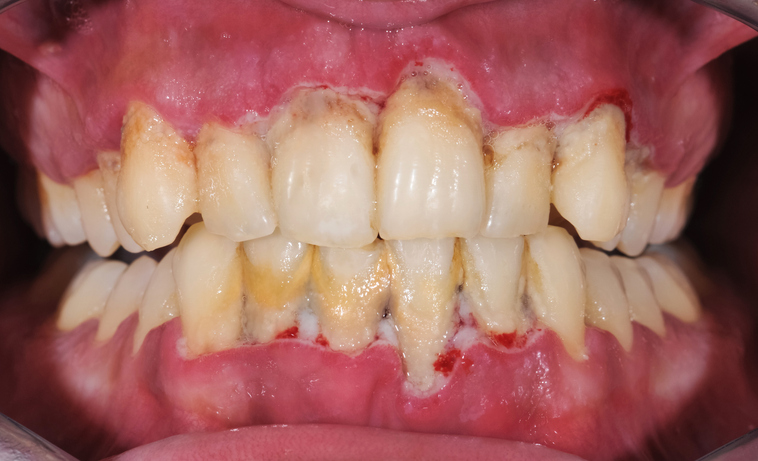
Effect of keratinized mucosa on implant health-related parameters

Investigators have found that a lack of buccal keratinized mucosa may adversely affect long-term peri-implant health, according to a study published in Clinical Implant Dentistry and Related Research.
The investigators used the data from two randomized controlled studies to examine the 10-year outcomes of 74 patients with 148 implants. They analyzed clinical parameters such as bleeding on probing, probing depth, plaque index, marginal bone loss and keratinized mucosa width at buccal sites.
The investigators discovered that 35 of the implants were healthy, 67 of them had mucositis and 39 of them had peri-implantitis. Factors that reduced the risk of having bleeding on probing and marginal bone loss included having buccal keratinized mucosa and using two-piece implants; however, the association was low.
The investigators concluded that clinicians should consider the potential protective effects of buccal keratinized mucosa against inflammation in patients with implants.
Read more: Clinical Implant Dentistry and Related Research
The article presented here is intended to inform you about the broader media perspective on dentistry, regardless of its alignment with the ADA's stance. It is important to note that publication of an article does not imply the ADA's endorsement, agreement, or promotion of its content.